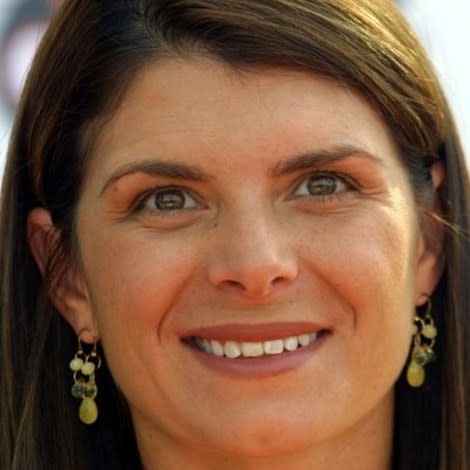Olympic Nostalgia: Mia Hamm

as told to Florence Kane, Vogue
In honor of the upcoming summer games, we caught up with eight former U.S. Olympic champions. In this series, they share their fondest memories of everything it took to win the gold.
I was walking up the stadium steps at a men's soccer game at the University of North Carolina at Chapel Hill, where I was in college and playing on the women's team, when someone said, "Did you hear? They're making women's soccer a full-medal Olympic sport." (Up until that point, it had just been for exhibition). It was 1993 and I'd been on the U.S. national team since 1987, when I was fifteen.
See also: Vogue's Guide to Getting Great-Looking Legs
As an American who grew up watching the Olympics on television, playing in the games was all I wanted to do. And it would mean I could continue playing beyond the World Cup in 1995. I had a reason to keep going. There was no women's professional league in the States at that time, so once you got out of school, there wasn't a lot of opportunity or financial support. The U.S. Soccer Federation helped, but you had to hope that your day-job employer would allow you the time to train, or that your parents would foot the bill for you to keep doing it. Some athletes went overseas to play in Europe or Japan. Others were coaches on the side. There were only a few who had endorsement deals.
See also: 100 Under $100 Summer Finds
The 1996 Atlanta games changed all that. And it changed the way people looked at women's soccer and really, women's sports in general-softball was added to the Olympics that year, too. People were very unaware of our team's World Cup successes (we'd won in 1991 and placed third in 1995). Atlanta was the first time we got big exposure in the U.S. Unlike other Olympic sports that take place in one venue, soccer was spread out across the country. We played in Miami, Orlando, Alabama, D.C., and then Georgia for the final. That's when the whole world discovered who we were, learned our first names. After our team beat China to win the gold, people were stopping us in the street, and it wasn't the usual, "What sport do you play?" It was, "Hey, there's Mia! There's Brandi [Chastain] and Briana [Scurry]!"
We went to the 2000 Sydney games with high expectations, but lost the gold to Norway. It was the best game we'd played there, and to lose 3-2 in sudden death, we were shocked. The emotions hit you in the locker room, or when you see your family afterward. They make a lot of sacrifices for you to play, and when you lose, they feel the pain just as much, if not more, because they're in the stands watching powerlessly.
See also: Summer Skin Fixes
Our near miss in Sydney definitely fueled us for Athens in 2004. After we beat Brazil to retake the gold, I was at the women's basketball final game when the Olympic press officer for the United States told me I'd been chosen to carry our country's flag in the closing ceremony. It felt amazing to be picked by my fellow athletes, not just from soccer but from all the U.S. teams, the ones I admired and had been watching that summer. It was so meaningful because these were going to be my last Olympics. I was about to retire. Not because I had to, but because my husband, professional baseball player Nomar Garciaparra, and I wanted to start a family. I was in a good place. I had accomplished more than I ever thought I would.
More from Vogue:
Angelina Jolie Throughout the Years in Vogue
Could Your Thyroid Be Making You Depressed?
Vogue Guide: 40 Hot Summer Sandals
Melt-Proof Summer Beauty
